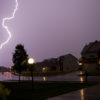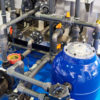Looking for a pool service for regular maintenance of your pool? Pool Troopers is a full-service company that can assist pool owners who have not had good service in the past. We help you after you have tried do-it-yourself and are now ready for professional maintenance. Providing chemicals, cleaning, and repair, we are a full-service company.
Requirements for Good Pool Water
Keeping your pool clean is a matter that concerns all owners of a swimming pool. Required for the health and safety of your pool are:
- Disinfection or sanitization with proper pool chemicals
- Cleaning
- Circulation
- Filtration
Chlorine is very effective at killing viruses and bacteria that might be lurking in your swimming pool. It provides a safe environment to swim. It can help in oxidation, although other chemicals are often used. Residual sanitization means that sanitizer is present in some amount always.
Water Chemistry
There are several factors that are involved in the chemistry of your pool. They are:
- Water balance
- pH
- Alkalinity and Calcium Hardness
- Sanitation and Oxidation
- Residual Chlorine Levels
Your pool water is balanced when the pH is between 7.4 and 7.6, a bit above the neutral point. Many things can affect this pH factor; swimmers, rain or another thing that enters the pool water. The pH level can frequently change, as conditions of weather and the use of the pool changes.
Alkalinity keeps the pool’s pH from drastically changing. Ideal alkalinity is between 100 and 150 ppm. With the balance of the water comes a calcium hardness level. Calcium added to the water keeps the pool water from seeking alkalinity or hardness from the pool’s plaster which can be harmful to the plaster of the pool. The level should be at 200 to 275 ppm.
Balanced pool water should be enjoyable and safe for swimmers and secondarily should protect pool finishes and equipment.
The Safety of Your Pool
Bacteria and algae can affect the cleanliness and thus the safety of those who swim in the water. Many chemicals can be added that fight the bacteria; among the most popular used are chlorinating compounds found in tablets and powders and salt chlorine generators. Bromine is also used to combat algae and bacteria, though mostly in indoor pools and hot tubs. Biguanide is an alternative to chlorine though it only sanitizes and does not oxidize swimmer wastes or dead organic material like chlorine. Minerals can also be added; however, your pool will be sanitized at a slower rate and the minerals, such as silver and copper, are only effective as sanitizers and will not oxidize, they also require having a residual chlorine reading in the pool to be used for pool sanitation.
The oxidation or “shocking” of your pool should be done as needed but no more frequently than weekly. If you are having pool issues requiring you to shock your pool more frequently please consult a pool professional right away.
Is Chlorine Safe in my Pool?
If you swim regularly, you may be concerned about pool safety from the addition of chlorine. According to a New York Times article, it is the addition of urine to the pool that should cause more concern. Swimming without the chemicals “..could be like swimming in a petri dish, exposing people to all sorts of potentially nasty microbes, experts say.”
The water chemistry of your pool is as important to the safety of your family as is basic water safety, such as swimming lessons, pool gates, etc. Testing and regular maintenance can contribute to making your swimming pool safe and fun for family and guests. Pool Troopers can help in providing the pool care that your family deserves. With no need to keep chemicals stored where children and pets can reach them, your pool area becomes family-friendly once more.
The Pool Troopers Difference
Pool Troopers can ensure that the water chemistry of your pool is correct to create a safe pool to swim in. If you have cloudy water or the pool water is green, give us a call so we can assess the situation. Water with algae is not safe to swim in; Algae is a food source and breeding area for bacteria and so you must look into the causes. Browse our website to learn more about keeping your pool water safe for your family.



